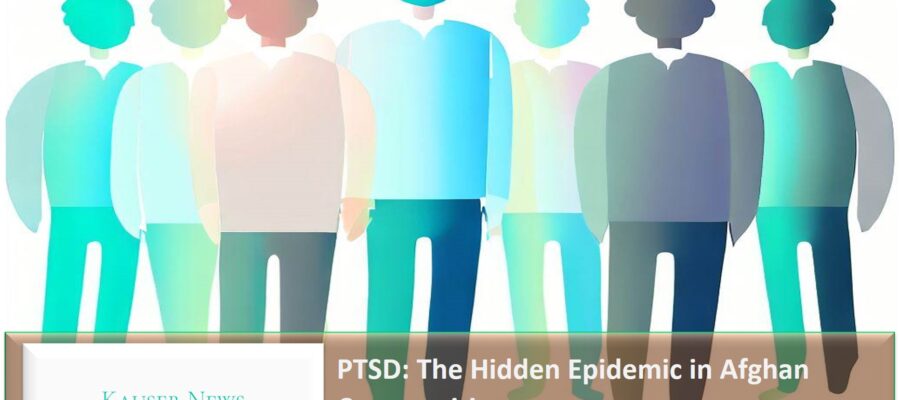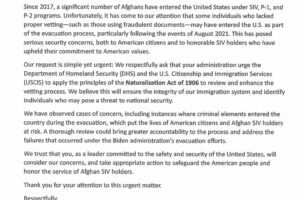There is a dire need among the Afghan community for education about and treatment for PTSD. Exposure to combat, witnessing violence, experiencing personal injury, and other traumatic events can significantly contribute to the development of PTSD among Afghan veterans. Likewise, many Afghan civilians have witnessed and experienced traumatic events or acts of violence many times over throughout years of warfare in their country. All of this takes a toll on the mind and body, often in the form of Post Traumatic Stress.
The signs and symptoms of PTSD can vary from person to person, but some common signs include:
1. Intrusive memories: Distressing and unwanted memories of traumatic events that can come in the form of flashbacks or nightmares.
2. Avoidance: Avoiding people, places, or activities that remind the person of the traumatic event or events. They may also try to avoid talking or thinking about the event.
3. Negative changes in thinking and mood: Negative thoughts and feelings about oneself or the world, feelings of detachment or numbness, loss of interest in previously enjoyed activities, difficulty experiencing positive emotions, and memory problems.
4. Hyperarousal: Feeling constantly on edge, being easily startled, having difficulty sleeping, experiencing irritability or anger outbursts, and having trouble concentrating.
5. Emotional reactivity: Experiencing intense emotional reactions, such as feeling easily overwhelmed, experiencing mood swings, and having difficulty regulating emotions.
6. Hypervigilance: Being constantly on high alert, scanning the environment for potential threats, and being easily startled.
7. Physical symptoms: Individuals with PTSD may also experience physical symptoms such as headaches, gastrointestinal problems, or increased heart rate in response to triggers or reminders of the traumatic event
Kauser News spoke to a Former KAIA Camp Security Commando who was at Kabul Airport working with American soldiers at the height of the 2021 evacuation and was present when the suicide bomb exploded in August 2021. We also spoke with an Afghan civilian who evacuated in August 2021. For security reasons, we do not use their real names.
Even before the 2021 evacuation, Mr. L., who was a member of the Afghan Special Forces, worked alongside the United States Special Forces for many years in Afghanistan. He and his family resettled in the United States in November 2021. He described several symptoms consistent with PTSD that are disrupting his day-to-day life, including blackouts and flashbacks to the 2021 airport bombing and other acts of violence he experienced in his years working with the Special Forces. He experiences occasions of severe headaches, blurred vision, loss of appetite, and bouts of intense anxiety and fear that are triggered by loud noises that remind him of the sounds of gunshots and explosions. Yet, when asked if he had ever been told about or evaluated for PTSD, he responded that he had never heard of PTSD and didn’t know what it was.
Ms. I. said that while living in Afghanistan for the past 20 years, hearing explosions and gunshots was a daily experience. While still in Afghanistan, she started to suffer from headaches, anxiety attacks, and episodes of losing her temper with her children without explanation. Concerned, she saw doctors in Afghanistan, hoping to find an explanation and treatment. She never received a diagnosis or effective treatment. In August 2021, she and her family fled their home for Kabul Airport in hope of escaping the increased violence that followed the U.S. withdrawal. She said that as they were trying to enter the airport, she witnessed U.S. security forces ahead of them firing tear gas and smoke bombs to drive back the masses of people trying to pass through the airport gates. Behind them, she saw Taliban soldiers arresting people who has turned back and beating women with sticks. Too afraid to turn back, they pressed on and eventually a U.S. marine helped them enter the airport.
She and her family were evacuated to Fort Lee in the U.S. In addition to the symptoms she started experiencing in Afghanistan, she began to have nightmares about explosions and other violence she had witnessed. During the day, loud noises triggered flashbacks. When asked about PTSD, she responded that she learned about it in the U.S. and believes that she is suffering from it, but has not sought help or treatment. When asked why, she said although she knows of many other people who are having similar experiences, there is a lot of embarrassment and shame associated with anything considered a mental illness in Afghan culture. She believes that the U.S. government needs to educate Afghan communities on PTSD and make efforts to destigmatize seeking help and treatment.
The reluctance to discuss or seek help for mental health problems, particularly in societies where there may be a stigma or lack of understanding surrounding mental health, is a common issue. As mentioned by Ms. I., public awareness campaigns as well as accessible mental health resources can play a vital role in reaching out to individuals who may be suffering from PTSD or other mental health conditions. It is crucial to promote open dialogue and provide education to reduce the barriers to seeking mental health support. Without urgent, sustained, and comprehensive action, PTSD and related health issues will continue to be destabilizing and painful barriers for many Afghans who are attempting to build a secure, successful, and happy life for themselves and their families in the United States and elsewhere.





